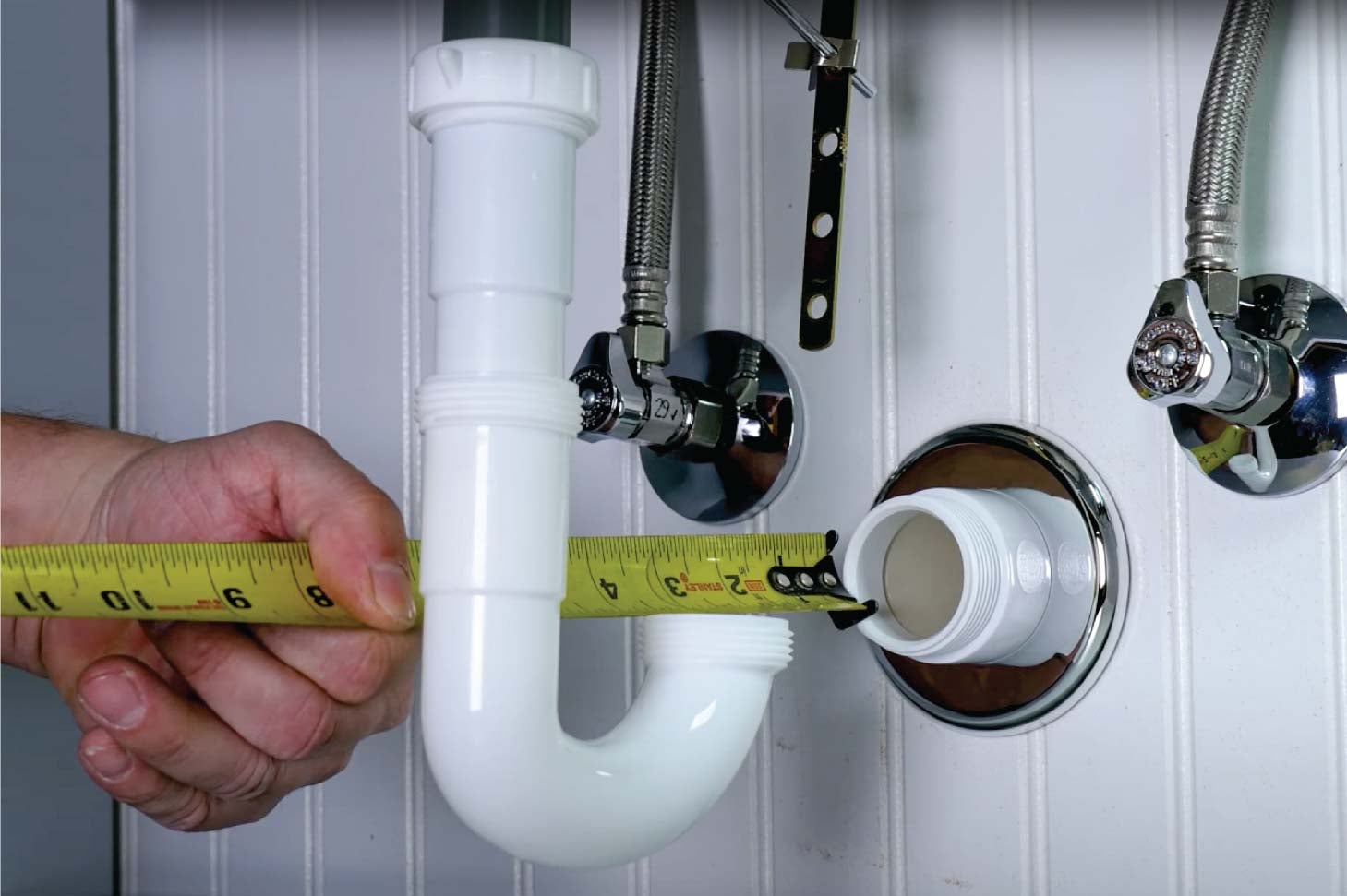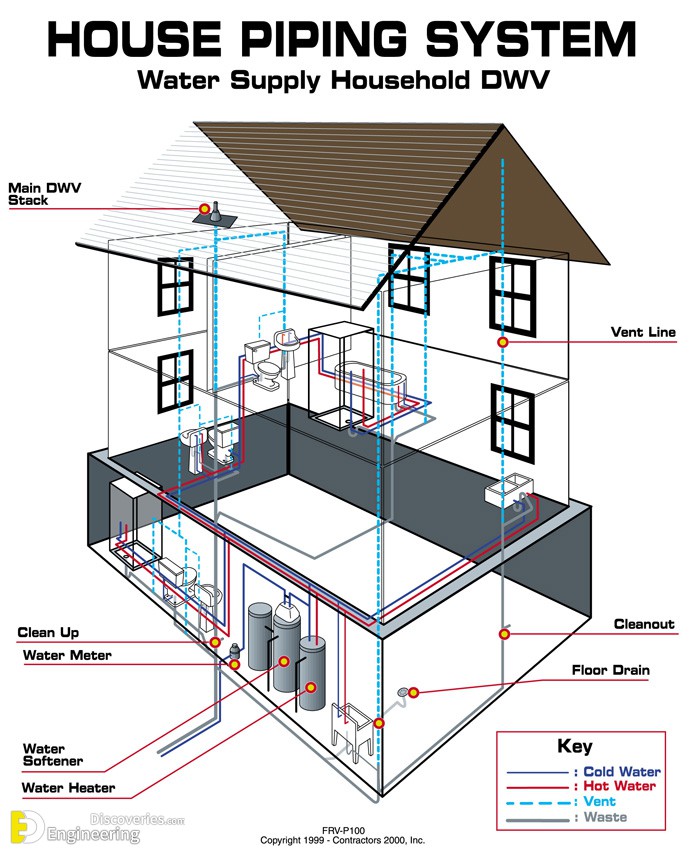The Layout of Your Home's Plumbing System Explained
The Layout of Your Home's Plumbing System Explained
Blog Article
What're your thoughts concerning Understanding Your Home's Plumbing Anatomy?

Understanding just how your home's plumbing system works is important for every homeowner. From supplying clean water for drinking, food preparation, and showering to safely eliminating wastewater, a properly maintained plumbing system is vital for your family members's wellness and comfort. In this detailed guide, we'll check out the detailed network that makes up your home's plumbing and deal pointers on upkeep, upgrades, and handling common problems.
Intro
Your home's pipes system is greater than simply a network of pipelines; it's an intricate system that guarantees you have accessibility to tidy water and effective wastewater removal. Understanding its components and just how they interact can aid you protect against expensive repair work and guarantee everything runs efficiently.
Standard Elements of a Pipes System
Pipes and Tubing
At the heart of your plumbing system are the pipelines and tubes that bring water throughout your home. These can be made of various materials such as copper, PVC, or PEX, each with its benefits in regards to toughness and cost-effectiveness.
Components: Sinks, Toilets, Showers, etc.
Fixtures like sinks, commodes, showers, and bath tubs are where water is utilized in your home. Understanding how these components link to the plumbing system helps in detecting issues and planning upgrades.
Shutoffs and Shut-off Factors
Valves control the circulation of water in your pipes system. Shut-off valves are critical during emergency situations or when you require to make repairs, enabling you to isolate parts of the system without interfering with water circulation to the whole home.
Water Supply System
Main Water Line
The main water line links your home to the community water supply or an exclusive well. It's where water enters your home and is distributed to numerous fixtures.
Water Meter and Stress Regulator
The water meter steps your water use, while a pressure regulator makes sure that water streams at a secure pressure throughout your home's pipes system, avoiding damages to pipes and components.
Cold Water vs. Warm water Lines
Comprehending the difference between cold water lines, which provide water straight from the main, and warm water lines, which lug heated water from the hot water heater, aids in repairing and planning for upgrades.
Drain System
Drain Pipes Pipes and Traps
Drain pipelines carry wastewater away from sinks, showers, and bathrooms to the sewage system or septic tank. Catches protect against sewer gases from entering your home and likewise catch debris that could trigger obstructions.
Ventilation Pipes
Air flow pipelines permit air into the drain system, protecting against suction that can slow drain and create catches to empty. Proper ventilation is necessary for maintaining the integrity of your plumbing system.
Significance of Correct Drainage
Making sure correct drainage stops back-ups and water damages. Routinely cleaning drains and preserving traps can stop pricey fixings and expand the life of your pipes system.
Water Furnace
Types of Water Heaters
Hot water heater can be tankless or traditional tank-style. Tankless heating units warm water as needed, while storage tanks store heated water for immediate use.
How Water Heaters Connect to the Pipes System
Recognizing just how hot water heater link to both the cold water supply and hot water distribution lines aids in identifying problems like insufficient warm water or leakages.
Maintenance Tips for Water Heaters
Routinely flushing your water heater to eliminate debris, inspecting the temperature level setups, and checking for leaks can prolong its lifespan and improve energy efficiency.
Usual Pipes Concerns
Leakages and Their Causes
Leaks can occur due to maturing pipes, loose fittings, or high water stress. Resolving leakages immediately stops water damage and mold development.
Obstructions and Obstructions
Blockages in drains pipes and bathrooms are typically triggered by purging non-flushable products or an accumulation of grease and hair. Making use of drainpipe screens and bearing in mind what decreases your drains can prevent obstructions.
Indications of Plumbing Issues to Watch For
Low tide pressure, slow drains pipes, foul odors, or uncommonly high water bills are indicators of possible plumbing problems that need to be attended to quickly.
Pipes Upkeep Tips
Regular Examinations and Checks
Arrange annual pipes inspections to catch concerns early. Try to find indications of leaks, corrosion, or mineral buildup in taps and showerheads.
Do It Yourself Maintenance Tasks
Basic tasks like cleaning tap aerators, looking for bathroom leaks using dye tablets, or shielding revealed pipes in cold environments can protect against major plumbing concerns.
When to Call a Specialist Plumbing Technician
Know when a pipes concern needs professional experience. Attempting complex fixings without appropriate knowledge can bring about even more damage and greater repair work costs.
Upgrading Your Pipes System
Reasons for Updating
Upgrading to water-efficient fixtures or changing old pipes can boost water quality, minimize water expenses, and raise the value of your home.
Modern Pipes Technologies and Their Benefits
Check out modern technologies like smart leak detectors, water-saving commodes, and energy-efficient water heaters that can save cash and reduce ecological influence.
Cost Factors To Consider and ROI
Compute the upfront expenses versus lasting savings when taking into consideration pipes upgrades. Several upgrades pay for themselves with lowered utility expenses and less repairs.
Environmental Effect and Preservation
Water-Saving Components and Devices
Installing low-flow faucets, showerheads, and bathrooms can significantly decrease water usage without giving up efficiency.
Tips for Reducing Water Usage
Basic behaviors like taking care of leakages promptly, taking shorter showers, and running full tons of washing and recipes can conserve water and lower your utility expenses.
Eco-Friendly Pipes Options
Take into consideration lasting pipes products like bamboo for flooring, which is durable and environmentally friendly, or recycled glass for counter tops.
Emergency situation Readiness
Actions to Take Throughout a Pipes Emergency
Know where your shut-off valves are located and just how to switch off the water system in case of a ruptured pipeline or significant leakage.
Relevance of Having Emergency Contacts Useful
Keep get in touch with info for regional plumbing technicians or emergency situation solutions conveniently offered for fast action throughout a pipes dilemma.
Do It Yourself Emergency Situation Fixes (When Suitable).
Momentary repairs like utilizing duct tape to patch a leaking pipeline or positioning a pail under a trickling tap can lessen damages up until an expert plumbing gets here.
Verdict.
Recognizing the makeup of your home's pipes system equips you to maintain it effectively, saving time and money on repair services. By complying with normal upkeep regimens and remaining educated concerning modern-day pipes modern technologies, you can guarantee your pipes system runs successfully for several years ahead.
Understanding Your Home Plumbing System: A Comprehensive Guide
Plumbing System: The Lifeline of Your Home
At its core, the plumbing system is designed to perform two primary functions: bring fresh water into your home and remove wastewater. The system is a network of pipes, fixtures, and other components that transport water and sewage. Residential plumbing systems include potable water supply lines, drain-waste-vent (DWV) systems, and various plumbing fixtures that make water use in daily tasks possible.
Key Components:
Water Supply: This part of your plumbing system brings municipal water into your home, passing through the main water supply line. It s responsible for supplying all water needs, from drinking to bathing.
Drainage System: It carries waste and water away from your home to the sewer or septic system. This system includes all the piping within your home that leads to external sewage or septic systems.
Vent System: An essential yet often overlooked component, the vent system allows sewer gases to escape and lets air into the drainpipes, ensuring water and waste move correctly through the system.
Fixture: More Than Just Taps and Toilets
Plumbing fixtures are the most interactive parts of the plumbing system, including faucets, showers, toilets, and sinks. Each fixture is connected to the plumbing system and plays a role in either the delivery of freshwater or the disposal of waste and wastewater.
Types of Fixtures:
Faucets and Sinks: Used for washing hands, dishes, and other daily water needs. Toilets: Dispose of human waste through the sewage system. Bathtubs and Showers: Provide bathing facilities, requiring both hot and cold water supply. Water Supply: The Source of Life
The water supply system is a critical component, ensuring that potable water is available throughout your home for various uses, including drinking, cooking, and cleaning. This system consists of pipes that distribute water to different parts of the house, controlled by valves to regulate the water flow.
Types of Plumbing: Materials and Methods
Various types of plumbing systems and materials are used in residential settings, each with its advantages and applications. From copper and PVC pipes for water supply to cast iron and ABS for drainage, the choice of materials can impact the longevity and efficiency of your plumbing system.
https://intownplumbingtx.com/articles/home-plumbing-system-guide/

I discovered that entry about Understanding Your Home's Plumbing Anatomy while doing research the internet. Appreciated our content? Please share it. Help another person check it out. We enjoy your readership.
Booking Report this page